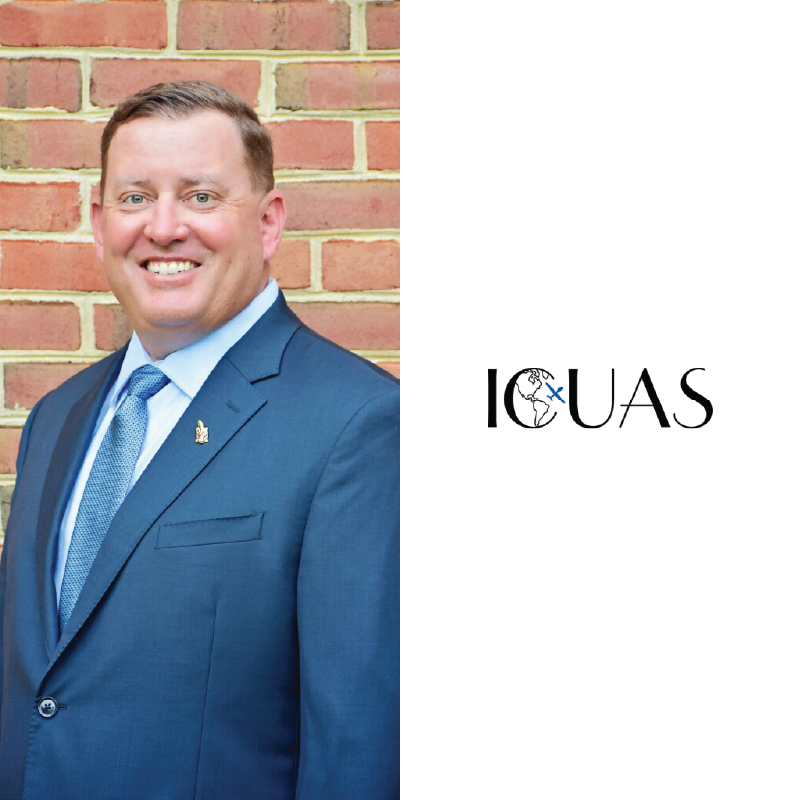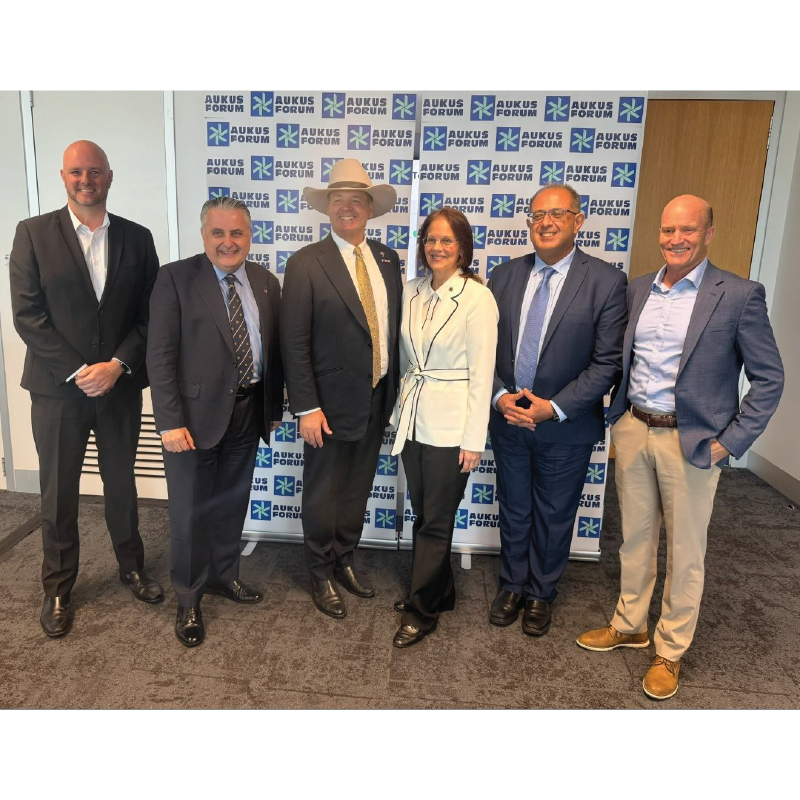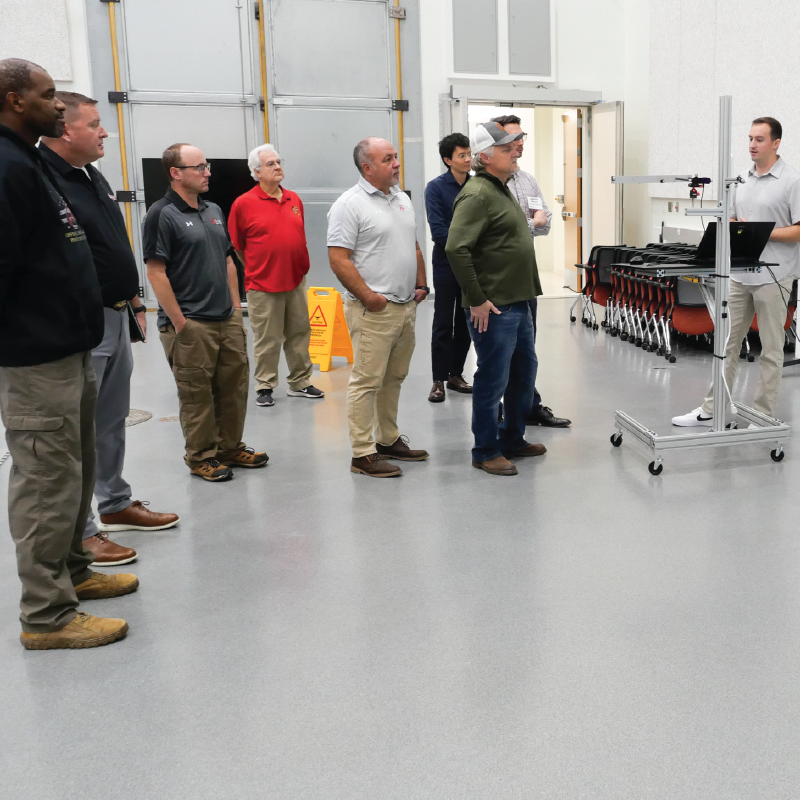News Story
Bailey Awarded NSF Graduate Research Fellowship
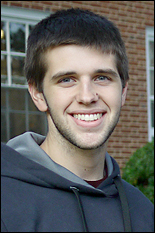
MSE senior and NSF Graduate Research Fellowship recipient Eric Bailey.
Senior Eric Bailey, a member of the University of Maryland’s Department of Materials Science and Engineering (MSE), has been awarded a Graduate Research Fellowship from the National Science Foundation (NSF). Three MSE graduate students, Steven Lacey, Samuel Schwarm and Elizabeth Tennyson, and one MSE undergraduate, Allen Chang, received Honorable Mentions.
NSF Graduate Research Fellowships, which are among the most prestigious academic wards in the nation, provide three years of support that may be used over a five-year period. For each year of support, the NSF provides a stipend of $30,000 to the fellow and a cost-of-education allowance of $10,500 to the degree-granting institution. Honorable Mentions are granted to meritorious applicants who do not receive fellowship awards as an acknowledgement of significant national academic achievement.
Starting this fall, Bailey’s fellowship will support his graduate studies at the University of Pennsylvania’s Department of Materials Science and Engineering.
“I expect to work on polymers or nanocomposites, but with [the NSF graduate research fellowship] I have more flexibility,” he says. “I am very interested in understanding the structure-property relationship and hopefully will have a significant computation and simulation component to my thesis.” After receiving his Ph.D., he would like to explore careers in industry in product development, but hopes to maintain ties with academia. “I enjoy teaching, mentoring and tutoring…so I hope to be a [part-time] lecturer at a university.”
Bailey, one of the university’s Merrill Presidential Scholars, is a member of MSE and Institute for Research in Electronics and Applied Physics assistant professor Marina Leite’s Renewable Energy and Advanced Devices (READ) lab, where he works on the characterization and improvement of materials used in solar cells. In 2014, he received a Successful Engineering Education and Development Support (SEEDS) Research Fellowship that funded a study in which he used a new imaging technique developed by the READ Lab to spatially map solar cell parameters such as current density, fill factor, and power conversion efficiency at sub-micron resolution. His is among the first to characterize photovoltaics in this way.
Bailey has published the results of a previous SEEDS fellowship under MSE professor Aris Chirstou, which described stress and low cycle fatigue behaviors in a lead-free solder, in the Journal of Materials Science: Materials in Electronics. His research experience also includes positions at the Naval Research Lab and W.L. Gore and Associates.
In spring 2015, Bailey received the Department of Materials Science and Engineering Chairman’s Outstanding Senior Award and the A. James Clark School of Engineering Kim Borsavage and Pamela J. Stone Student Award for Outstanding Service.
Honorable Mention Recipients
Chang and Tennyson, who are also members of Leite’s research group, have collaborated on studies of materials used in solar cells.
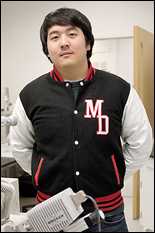 Chang received the Clark School’s 2015 Outstanding ASPIRE Research Award for his work on a project in which he sought to fabricate plasmonic (metallic and highly conductive) alloyed nanoparticles designed to reduce the cost and improve the power conversion efficiencies of solar cells. Chang recently received the department’s undergraduate Student Research Award. This fall he will attend the University of Massachusetts Amherst to pursue a Ph.D. in Polymer Science and Engineering. UPDATE: We are very pleased to announce that Allen Chang’s Honorable Mention was later elevated to a full NSF Graduate Research Fellowship!
Chang received the Clark School’s 2015 Outstanding ASPIRE Research Award for his work on a project in which he sought to fabricate plasmonic (metallic and highly conductive) alloyed nanoparticles designed to reduce the cost and improve the power conversion efficiencies of solar cells. Chang recently received the department’s undergraduate Student Research Award. This fall he will attend the University of Massachusetts Amherst to pursue a Ph.D. in Polymer Science and Engineering. UPDATE: We are very pleased to announce that Allen Chang’s Honorable Mention was later elevated to a full NSF Graduate Research Fellowship!
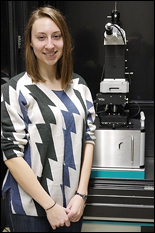 Tennyson won the Best Poster Award at the 40th IEEE Photovoltaic Specialist Conference (PVSC) for her efforts to characterize and improve copper indium gallium selenium (CIGS), a promising photovoltaic material. She recently received a 2015 Jacob K. Goldhaber Travel Grant to present her work at the International Society for Optical Engineering’s 2015 Defense, Security and Sensing Conference; took first place in a poster competition hosted by UMD’s student chapter of the Optical Society; and won a Summer Research Fellowship from UMD’s Graduate School. More information about her work with CIGS can be found in the proceedings of the PVSC.
Tennyson won the Best Poster Award at the 40th IEEE Photovoltaic Specialist Conference (PVSC) for her efforts to characterize and improve copper indium gallium selenium (CIGS), a promising photovoltaic material. She recently received a 2015 Jacob K. Goldhaber Travel Grant to present her work at the International Society for Optical Engineering’s 2015 Defense, Security and Sensing Conference; took first place in a poster competition hosted by UMD’s student chapter of the Optical Society; and won a Summer Research Fellowship from UMD’s Graduate School. More information about her work with CIGS can be found in the proceedings of the PVSC.
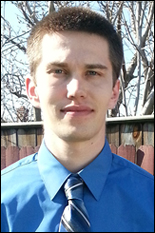 Lacey (B.S. ’14, materials science and engineering) is a first year graduate student and a member of MSE assistant professor Liangbing Hu’s research group at the University of Maryland Energy Research Center. His work focuses on the synthesis, modification, and characterization of low-dimensional nanomaterials for batteries and printed and flexible electronics. He is currently investigating the properties and formation of the solid electrolyte interphase of alkali metal ion batteries. Lacey recently received a National Defense Science and Engineering Graduate Fellowship. As an undergraduate, he was part of the MSE Capstone Design team whose modified ballistic grade Kevlar for soft body armor took first place in the 2014 national ASM International Undergraduate Design Competition.
Lacey (B.S. ’14, materials science and engineering) is a first year graduate student and a member of MSE assistant professor Liangbing Hu’s research group at the University of Maryland Energy Research Center. His work focuses on the synthesis, modification, and characterization of low-dimensional nanomaterials for batteries and printed and flexible electronics. He is currently investigating the properties and formation of the solid electrolyte interphase of alkali metal ion batteries. Lacey recently received a National Defense Science and Engineering Graduate Fellowship. As an undergraduate, he was part of the MSE Capstone Design team whose modified ballistic grade Kevlar for soft body armor took first place in the 2014 national ASM International Undergraduate Design Competition.
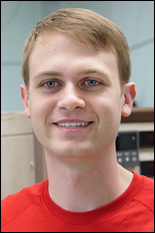 Schwarm is a first year graduate student advised by MSE professor Sreeramamurthy Ankem. His research currently focuses on the analysis of cast duplex stainless steels, which are used as structural materials in the cooling pipes of light water nuclear reactors. He is using mechanical techniques, transmission electron microscopy, and finite element method microstructure modeling to analyze the long-term effects of elevated operational temperature on these materials. Schwarm received his B.S. from the University of Alabama, where he won the Department of Metallurgical and Materials Engineering’s Outstanding Senior Award, and took second place in the Undergraduate Research Conference poster competition for his work on magnetic thin films for double-layer magnetic tunnel junction devices.
Schwarm is a first year graduate student advised by MSE professor Sreeramamurthy Ankem. His research currently focuses on the analysis of cast duplex stainless steels, which are used as structural materials in the cooling pipes of light water nuclear reactors. He is using mechanical techniques, transmission electron microscopy, and finite element method microstructure modeling to analyze the long-term effects of elevated operational temperature on these materials. Schwarm received his B.S. from the University of Alabama, where he won the Department of Metallurgical and Materials Engineering’s Outstanding Senior Award, and took second place in the Undergraduate Research Conference poster competition for his work on magnetic thin films for double-layer magnetic tunnel junction devices.
Published April 21, 2015





